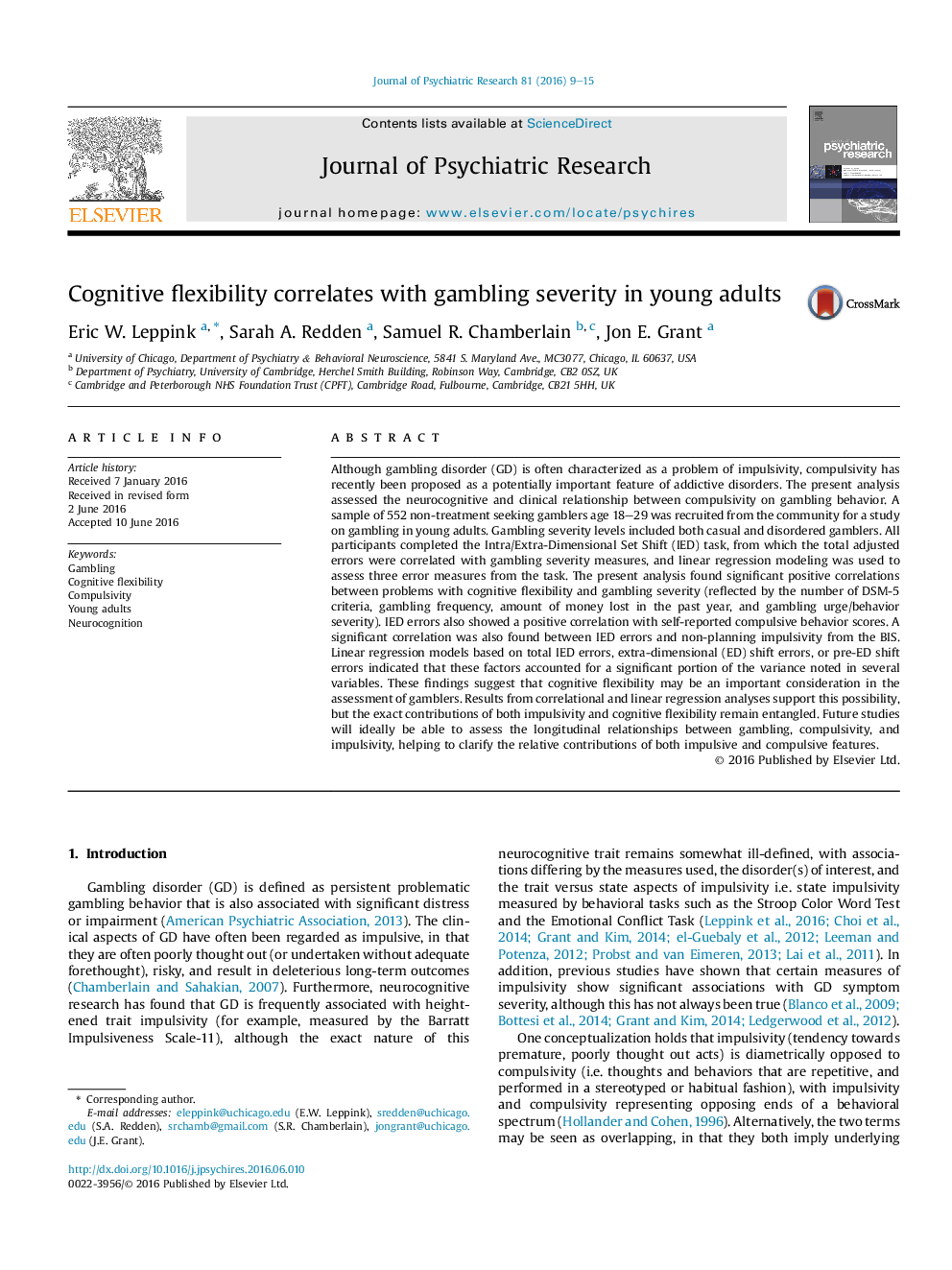| کد مقاله | کد نشریه | سال انتشار | مقاله انگلیسی | نسخه تمام متن |
|---|---|---|---|---|
| 326399 | 542411 | 2016 | 7 صفحه PDF | دانلود رایگان |
Although gambling disorder (GD) is often characterized as a problem of impulsivity, compulsivity has recently been proposed as a potentially important feature of addictive disorders. The present analysis assessed the neurocognitive and clinical relationship between compulsivity on gambling behavior. A sample of 552 non-treatment seeking gamblers age 18–29 was recruited from the community for a study on gambling in young adults. Gambling severity levels included both casual and disordered gamblers. All participants completed the Intra/Extra-Dimensional Set Shift (IED) task, from which the total adjusted errors were correlated with gambling severity measures, and linear regression modeling was used to assess three error measures from the task. The present analysis found significant positive correlations between problems with cognitive flexibility and gambling severity (reflected by the number of DSM-5 criteria, gambling frequency, amount of money lost in the past year, and gambling urge/behavior severity). IED errors also showed a positive correlation with self-reported compulsive behavior scores. A significant correlation was also found between IED errors and non-planning impulsivity from the BIS. Linear regression models based on total IED errors, extra-dimensional (ED) shift errors, or pre-ED shift errors indicated that these factors accounted for a significant portion of the variance noted in several variables. These findings suggest that cognitive flexibility may be an important consideration in the assessment of gamblers. Results from correlational and linear regression analyses support this possibility, but the exact contributions of both impulsivity and cognitive flexibility remain entangled. Future studies will ideally be able to assess the longitudinal relationships between gambling, compulsivity, and impulsivity, helping to clarify the relative contributions of both impulsive and compulsive features.
Journal: Journal of Psychiatric Research - Volume 81, October 2016, Pages 9–15
